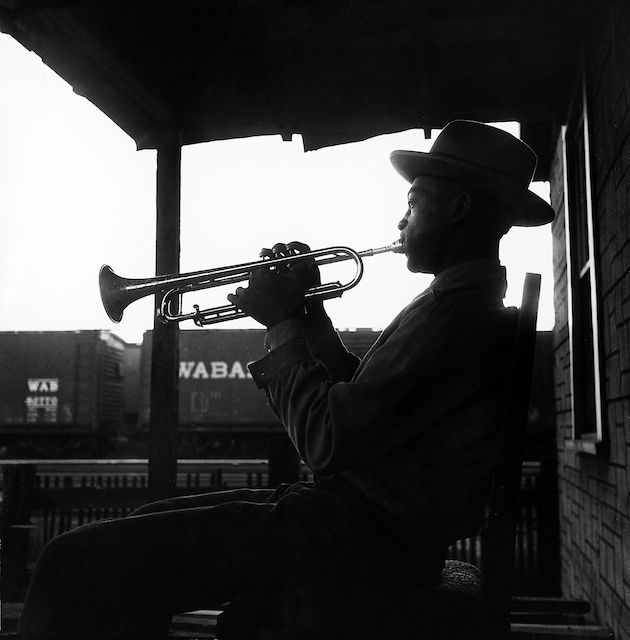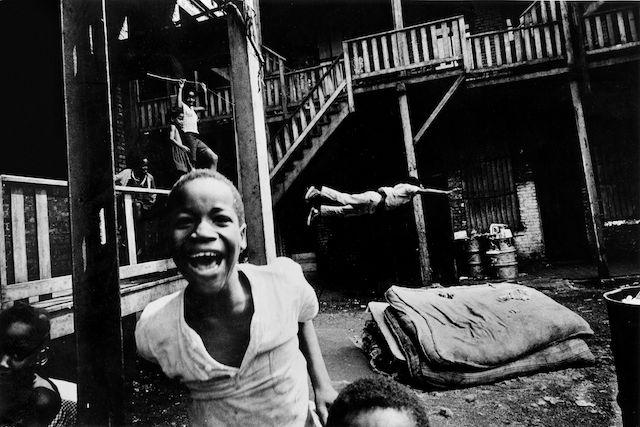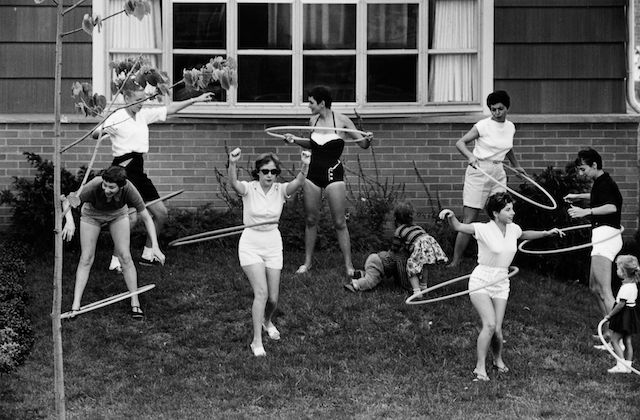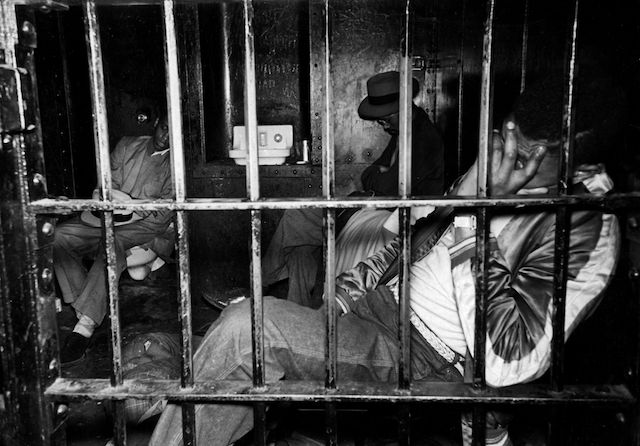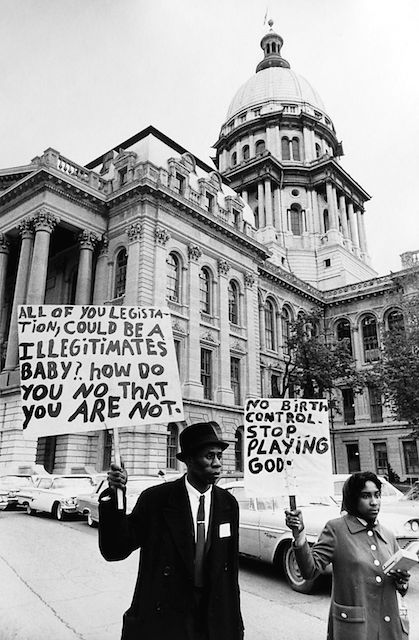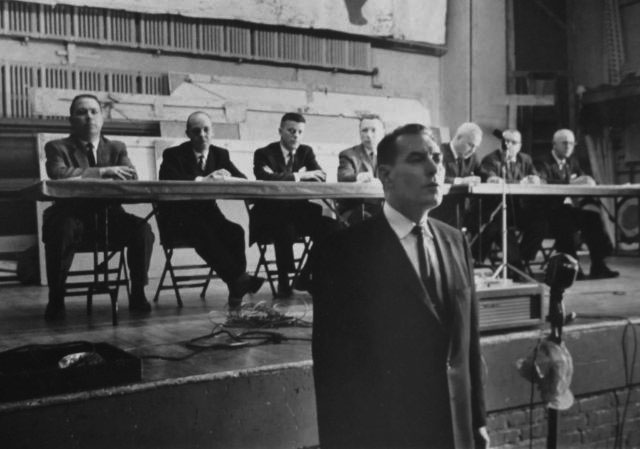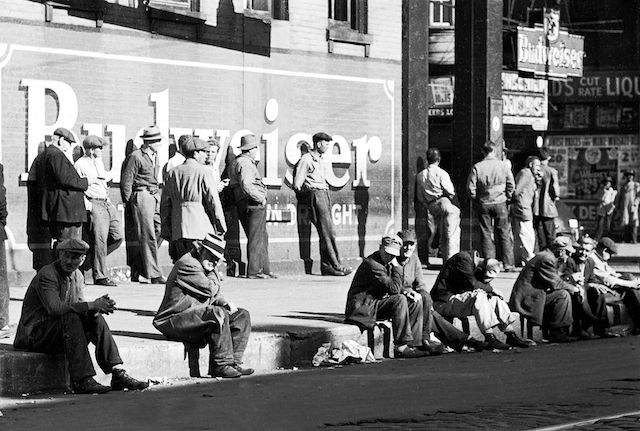From the Vault of Art Shay: But Not Next Door
By Art Shay in Arts & Entertainment on Nov 2, 2011 7:00PM
(Legendary Chicago photographer Art Shay has taken photos of kings, queens, celebrities and the common man in a 60-year career. In this week's look at his photography archives, Art shares his recollections of race relations in suburban Chicago in 1959, with photos not seen in years.)
Here I am an old man in a wet month being read to by three men and a woman.
The woman is an old friend, Martha Lavey, Artistic Director of Steppenwolf Theatre. About a year ago she projected 50 of my Nelson Algren pictures across huge screens at her theater and had various actors and novelists, who knew and admired Nelson's work, talk about him. These included Willem Dafoe, Don DeLillo, Barry Gifford and Russell Banks.
Two of the male writers I speak of are authors/sociologists Harry and David Rosen .They wrote, Harvard honored, and I lived through the days of racial shame in Deerfield, IL, in 1959. The third reader is playwright Bruce Norris. I saw his new work, Clybourne Park, at Steppenwolf last Saturday with a couple of old friends who came to Deerfield ten years after our own agony.
Martha Lavey writes in the program notes:
"Central to Bruce Norris's interest is race in America. He takes as his frame Lorraine Hansberry's seminal drama, A Raisin in the Sun. Hansberry's play opened on Broadway in 1959... and tells the story of an African-American family in Chicago who receive an inheritance that allows them to leave their cramped apartment and move into a house in a white neighborhood..."On the way home I had them drive us past the old Bernie Scotch property on Apple Tree Lane and Bayberry, where a cross was burned on the lawn to remind us agitated and agitating Jews and other outraged activists that blacks wouldn't be tolerated. The then-party line (direct from the headquarters of Riverwoods leader Harold Lewis - usually sandwiched between faux communications signed by "me" "in charge of PR for Deerfield Citizens for Human Rights").
These poison-pen missives were aimed at overturning the previous year's vote by Deerfield- not to finance new parks.
The cry went up from 16 - count 'em - 16 Deerfield lawyers: "We need Parks." I was covering the rump meeting of these patriots for Life magazine when they tried to throw me out. "What kinda story you doing?" On freedom of the press in Deerfield, I said. So they let me stay. Several years later I would have the pleasure of testifying before the Senate Commerce Committee about the wheedling words of a candidate for the National Coal Commission who said he was joking then about his parents being driven out of Gary by you know who...
I remember one tearful lady testifying before a CBS camera: "If God wanted black birds and white birds to live in the same tree, he'd have put them there from the beginning." Wild applause.
Even a preacher from his pulpit denounced the possible loss of property values if two black families were permitted to buy houses erected by the Weinrib Company. Weinrib was represented by Adlai Stevenson's law firm.
Which brings me back to America. How is it faring 50 or so years from the rollicking first act of Clybourne Park.
The second act of the play moves the action 50 years forward, set in the same home in Chicago. It evidences the changes that this neighborhood - and this country - have undergone on these 50 years.
Bravo Steppenwolf yet again- for using the theater to explain the community around it. As the Teatro Atticus of Sophocles did in Athens 2,000 years ago. As Lavey so artfully puts it: "A complex, clever and thought-provoking dispatch from the homefront."
Next day, for the shocked Lewises, I pulled up the quote from my Life article that gave the Rosen brothers their title. From a seemingly good citizen, expressing his feelings about buying a house in Deerfield as late as 1957:
"We're not bigots. We don't go around calling people names. And I don't think we want to deny Negroes or anybody else the right to decent homes, just as good as ours. But not next door."
If you can't wait until this time every Wednesday to get your Art Shay fix, please check out the photographer's blog, which is updated regularly. Art Shay's book, Nelson Algren's Chicago, is also available at Amazon.
